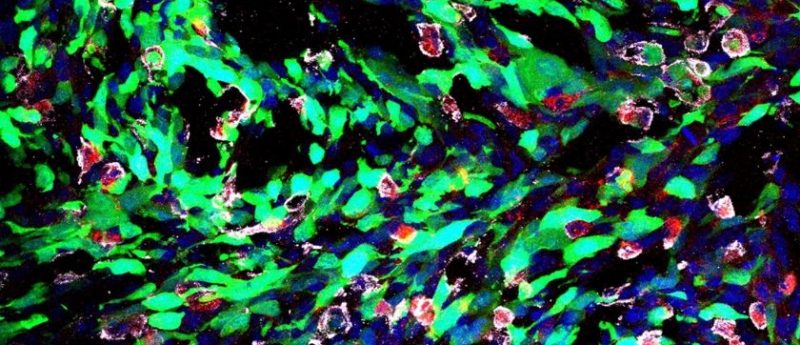Exosome-derived miRNAs regulate macrophage-colorectal cancer cell cross-talk during aggressive tumor development

Abstract
Colorectal cancer is one of the leading causes of death worldwide. Its incidence and mortality have significantly increased during the past few years. Colorectal cancer cells cross-talk with other cells through exosomes in their tumor microenvironment. The miRNAs containing exosomes are responsible for tumor growth, invasion, and metastasis. Multiple studies have shown that exosomal miRNAs are key players in the crosstalk between cancerous, immune, and stromal cells during colorectal cancer development. They help in the establishment of the tumorigenic microenvironment by reprogramming macrophages towards a pro-tumorigenic phenotype. In this review, we discussed various exosomal miRNAs derived both from colorectal cancer cells and macrophages that promote or inhibit cancer aggression. We also discussed various miRNA-based therapeutic approaches to inhibit cancer progression.
Plain language summary
Colorectal cancer is the 3rd most diagnosed cancer worldwide. The rate of new diagnoses is increasing mainly due to lifestyle changes, although family history and inflammatory bowel diseases are also associated with an increased risk of colorectal cancer. Cancer cells and immune cells, including macrophages, B- and T-cells communicate with each other through various soluble molecules and cell fragments called exosomes. These exosomes contain macromolecules that can be transferred between cells thereby stimulating or inhibiting cancer growth. A crucial component of exosomes, termed small non-coding RNA (micro-RNA/miRNA), has the potential to change the function of immune cells, such as macrophages, and lead them to promote cancer growth. To counter this effect, exosomal miRNA can be targeted to develop a novel therapeutic approach.